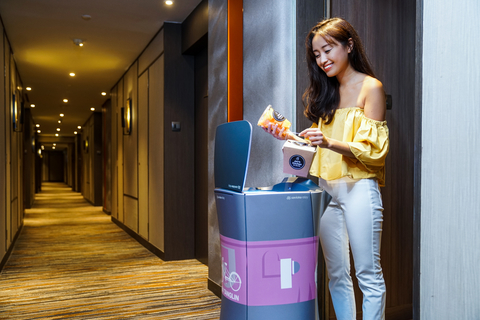About 15 years back, we saw robots in science fiction films that confused the mind and tried our imagination limits. Intelligent phone, fingerprint biometrics, facial recognition technology, functional artificial intelligence and computers that communicated to people: all this took the world boggled when Will Smith and Tom Cruise were in their prime action movies.
How there has been a lot of changes?
The technology that has been used in the blockbuster movie industry has now become our reality today. It has taken not much time than the changeover from a kid to an adult. For an average person, it may be unimaginable when innovation such as AI (artificial intelligence) is on our entrance.
Siri feature by Apple is an excellent computer program. It is said to be the best personal assistance and has been there in the industry for almost five years. Siri has been joined, in some instances, surpassed because of developments like actual robots and chatbots.
The technology is pertinent to every industry and appreciations to customer interaction. It is the main area where smart technology has been implemented. The next massive target is the target industry. It has been focused for personalized, more automated, smarter, predictive and newer processes. As progress continues, the tourism industry has chances for the world leader for advanced AI and cutting edge technology.
Let us see how technological advancements like collaborative robots have started to change the hotel industry.
Collaborative robot in the hotel industry

Real robots that are termed as collaborative robots remain in the travel domain. Mario at Marriot welcomes guests, Dash at InterContinental transport items between staff and guests and Connie at Hilton serves as the concierge. Nobody has seen collaborative robot interacting with guests before. Mario applies his time giving presentations, discussing the menu, inspecting rooms, giving speeches and guests check-in. The best part of this collaborative robot is it gains exceptional audience attention when delivering speeches.
The hotel owners have shared that the number of participants has increased after Mario started to make a presentation. Another best example is from Japan. Hotel Henn-na consists of more than one hundred rooms and features multilingual robots (one dinosaur and one collaborative robot in the form of a human woman). They are present at the main desk along with a robot concierge to transfer your luggage, equipped with a robot arm locker facility and facial recognition software. This way, you do not have to think about holding a key.
When you enter inside the room of the hotel, the air conditioning determines the temperature of your body. It adjusts the temperature accordingly as you control in-room facilities using the tablet. If you require anything, you can get help from Tuly- robot concierge that shares an extensive collection of knowledge.
The hotel industry has plans to implement drones in the future to deliver room services. Another best part is the hotels with collaborative robot starts from $80 per night, that makes an affordable option for budget travellers.
Messenger applications for customer assistance
 Apps have been popular and used widely in recent years. Its usage would continue as developers launch slicker platforms. Applications have already been selected by several companies to offer accurate real-time customer service devoid of the requirement to place an individual in the position. Google has announced Assistant service, Apple has launched Viv along with Siri, Amazon has Alexa, and Facebook has M. There are also certain apps associated with travelling like Pana and Lola. All these applications have been designed to offer an immediate constant type chat service to assist customers in managing and planning their day to day requirements. These apps are smart to handle complex requests. They are continuously updated with new features to handle more scenarios.
Apps have been popular and used widely in recent years. Its usage would continue as developers launch slicker platforms. Applications have already been selected by several companies to offer accurate real-time customer service devoid of the requirement to place an individual in the position. Google has announced Assistant service, Apple has launched Viv along with Siri, Amazon has Alexa, and Facebook has M. There are also certain apps associated with travelling like Pana and Lola. All these applications have been designed to offer an immediate constant type chat service to assist customers in managing and planning their day to day requirements. These apps are smart to handle complex requests. They are continuously updated with new features to handle more scenarios.
A large part of the travel industry has been implementing the apps with open arms. For example, Edwardian Hotels London has employed the virtual host- Edward to offer directory and review details, take amenities demands, connect visitors to an instant call back when they require human assistance and facilitate complaints. Edward has been designed in such a way to respond in a fraction of second.
In the same way, KLM – a Dutch airline makes use of Facebook messenger chat application to send passengers boarding passes, booking notifications and confirmations. It has been easily adopted by the hoteliers so that they can simply maintain continuous communication with visitors from the time of booking to the check-out phase and also other phases in between. From Here – you can check out the applications of collaborative robots.

